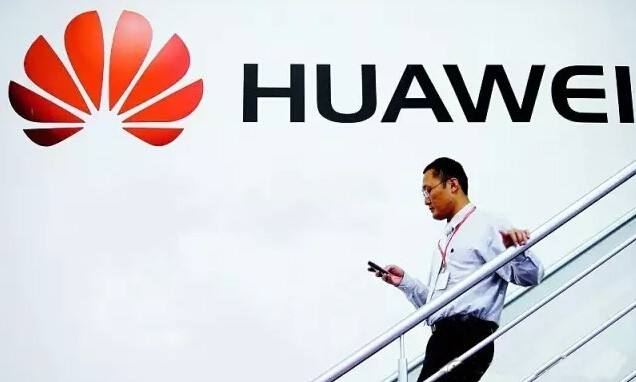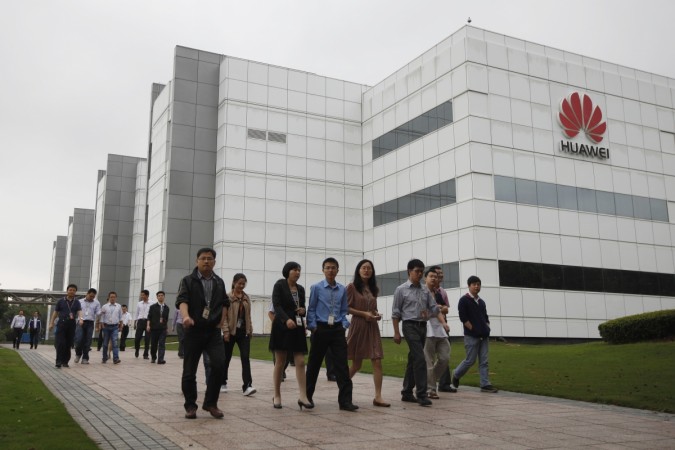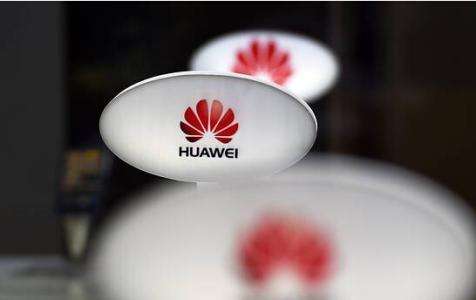Huawei Under the Rumor of Layoffs: Company Is Not Family | China Deep Diver
![]()
Deep Diver is an Elephant Room column for stories that got lost in translation. Each week, we'd pick a batch of the most interesting and relevant content from an ocean of Chinese sources, translate and serve them to you.
It's almost like an buyer's boutique for Chinese content: Elephant Room does the sourcing, you sit back, read and enjoy.
![]()
Original Article: 裁员传闻下的华为:公司不是家
-Source: 每日人物
-Author: 朱柳笛
-Translator: 虫洞翻翻
-English Editor: Janice Zhou
![]()
As members of one of the the Fortune Global 500 company, employees of Huawei are known for their "Wolf Spirit" and their sense of pride when talking about their company. Yet the rumor of layoffs elicited panic among the employees, it seemed the sense of unity was not mutual.
1.
From the beginning of the year, the age of 34 became a sensitive issue among the employees of Huawei. Without any inside notification and related policy, there is a rumor that Huawei is going to ask employees above the age of 34 to leave. “Any company dismissing excellent employees around the age 34 is crazy,” said Xu Zhijun, the CEO on duty, denying the intention of any layoff. Forbidding anyone to talk about it by hosting small meetings, the rumor coming from the inside BBS - ‘Inner Voice Forum’, still resulted a great shock.
“Huawei is a huge palace, like the villa they built near the Songshan Lake, grand and beautiful. It has with its own system, value, supply and atmosphere, it is connected yet isolated to the outside.” Said Zhang He.

However, there is a voice inside the company saying that it will be hard find other jobs after you leave this palace.
2.
As a former worker of Huawei, Li He enjoyed the high salary of Huawei, although price is he had to sacrifice most of his rights. But the one issue he complained the most, is the meaningless reporting process - if you want to do something, you have to report your idea over and over, even though it is your idea and it will be executed anyways in the end.
Zhang He also feels painful about the strict process, the common thing between them, are the stronger self-awareness and sense of superiority.
Everybody has to define a KPI for him/herself in Huawei. You have to use a presentation to make clear what you want to do, and what you can do for the company. For instance, if you are in charge of Weibo, your KPI will be the number of followers. The examination is twice a year. Although other companies have examinations as well, Huawei is more processed and everyone has to do it.
Huawei is built by Ren Zhengfei, who hopes the company will live longer than him. “He wishes Huawei doesn’t have to rely on anyone in order to function,” Ji Yongqing said, whether it is long term or short, he has influenced the lives of 180,000 employees. “Huawei has built a solid management system and platform, for which it will not be a problem for anyone to quit, even a VP or a head of a team.”
“I was told about this by an HR when I was hired, this is Huawei’s elite model: Huawei eliminates personalization and characteristic, they want everyone to be able to fit in any position, instead of specializing in one field,” Zhang He claimed, “It means that the company does not care about the employee’s personal choice and interest - choices that satisfy the company’s needs always come first.”
Whenever you are an employee of Huawei, it means that you can only be a component of whole system. So, in Zhang He’s opinion, the longer you stay in this company, the more you fear to leave.
When the rumor of layoffs came, their biggest fear is that they cannot survive after they leave.

3.
What makes employees willingly become a component of the process and stay in the company?
In China, Huawei is famous for encouraging workers by offering high salaries. On March 31st, Huawei released its annual report of 2016, leading to a crazy discussion in social media: 94 billion yuan of salaries and 13 billion yuan of share options were distributed to all 170,000 employees, which means every employee has an average annual salary of 631,000 yuan (91,580 dollars).
Lin Wen, graduated from a highly-valued university with a degree in journalism, had interviewed for the summer internship for client manager in Huawei. Like lots of people who’ve worked in Huawei, he observed the employees who are attracted by the high salary of Huawei, include people who are desperate to change their social class. “Some people in the company... yearn for material incentives.” said Lin Wen.
“Ren Zhengfei is no fan of the graduates of top universities like Tsinghua and Peking University,” Ji Yongqing recalled, “The first choice of those graduates is to go abroad…They choose to work for big, global companies like Microsoft and IBM. He only hires the graduates from second-tier universities…And he prefers to hire the kids from poor families…Inspiring them with high payments, letting them to work harder and harder.’
Li He worked in school before he joined Huawei in 2011, he is the typical kid who “comes from a poor family” and “can hardly make much money” from his last job. The expanded perception of money is his most satisfied achievement in his 6 years Huawei experience.
“When your business meetings are all about 10 million dollars, 30 million dollars and 50 million dollars, you don’t even want to touch a project that values only 2 million dollars,” said Li He, “my view on money has changed a lot.” When he was asked about his hobbies, he was confused, “I don't think I need anything to entertain myself, work is the only thing that matters.”
“Work is work, home is home. Don't mix them.” When Li He was hired in 2011, that was the first thing he was told. It is not easy to accept it when he was only 30 years old. When most companies at least pretend to talk about idealism, Huawei told him, “Don't talk about your dream in this completely commercialized company.”
Under such egocentric culture, any work that’s hard and painful with no big achievement, will be pushed to others.
“A lot of jobs are actually done by outsourced workers, official workers only report the work and take the reward.” Lin Lin said, as a former employee of Huawei, “Some of my co-workers did tons of trivial works, but they can’t get any credit from that…Everyone knows how to stick on his/her own territory.’’
4.
“The work area of Huawei is huge and far from the subway. Some people believe this kind of design is to keep employees away from the outside world. The price of Huawei’s apartment is pretty similar to the market price, only the new ones is a little bit cheaper. The monthly rent is 3000 yuan, two bedrooms. You eat in Huawei, and you go to work by the company’s shuttle car,” Lin Lin feels strongly isolated from the outside, “I feel like being fed in a pen.”

Few people will doubt about the isolation when it is easy to make money, most of workers are even ‘proud’ of it. “They take their company way too seriously, they take the company’s honor as their own, very conscious about collective honor.” said Lin Wen.
In Ji Yongqing’s opinion, the sense of superiority is the ultimate factor that caused the great panic by the rumor of layoffs.
“To be specific, Huawei wants to cut those workers who are above the age of 34, and mainly work in China as operation maintaining staff, because their jobs could be replaced by automatic software.”
Ji Yongqing keeps a frequent communication with the senior executors. He observed that the most miserable people are those who joined Huawei right after graduation. “They cannot tell the difference between the company and themselves. The more they are attached, the stronger the sense of crisis and failure.”
During this rumor, those who feel easy about it are the people who treat the relationship properly, not the people who treat work as their lifelong backbone. Like Lin Lin, “I came to Huawei to feel the atmosphere and learn something… It is time to go. I think there are lots of ways to explore in life, you can go somewhere else when one comes to an end,” Lin Lin told the People Magazine, she always treats personal growth as the most important thing.
And like Li He, even though he signed the ‘Striver’s Agreement’, he always remembers the company is still an exchange object, and never forgets to look for a better company with higher payment. He thought he was lucky to find another job and save enough money to change his social status. “Why did I change my job? Money.” He answered without hesitation.
He looks down on those who haven’t prepared for this. Firstly, their ability is not good enough. Secondly, what’s to complain about when the company pays you to leave?
Nevertheless, there is still a moment that he realized he has lost something. It’s the first time when he went to the new company and logged on his QQ - to prevent business disclosure, Huawei forbids employees to use QQ in the office. He hasn’t use it for 6 years, like he had thrown this kind of life away. When he found that he cannot remember anyone on his QQ contact, it occurred to him that Huawei had been all of his life in last 6 years.

